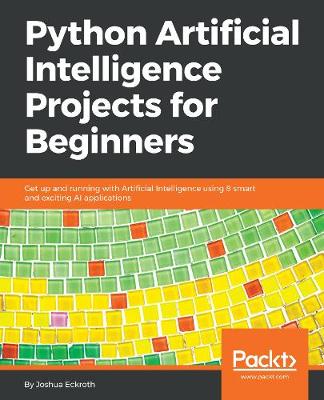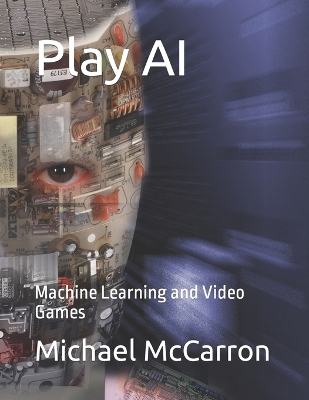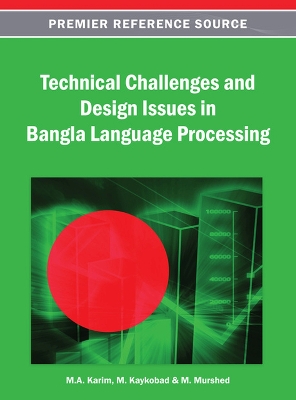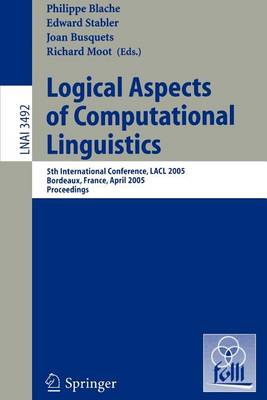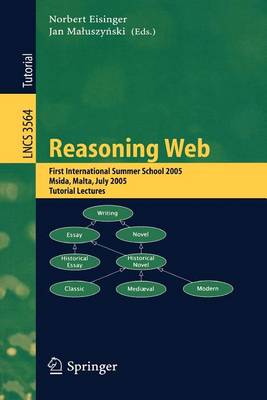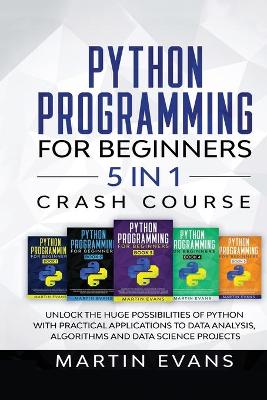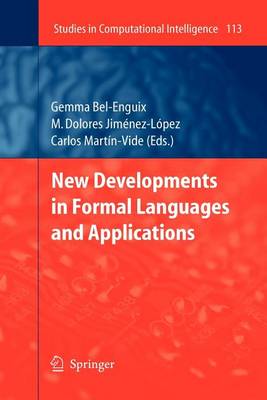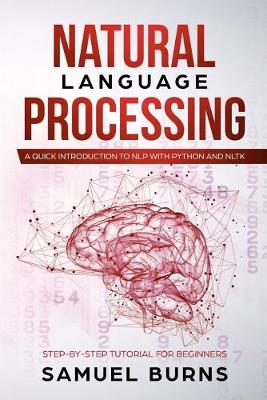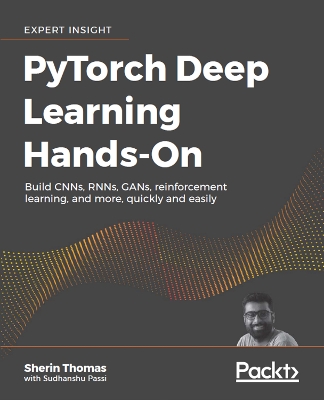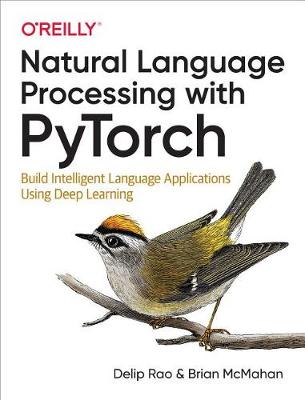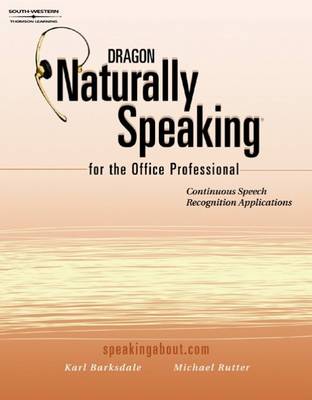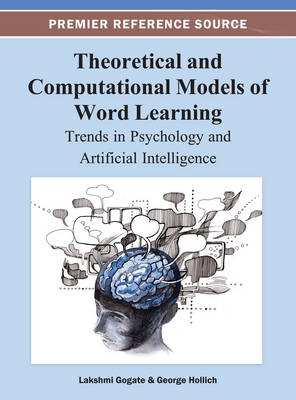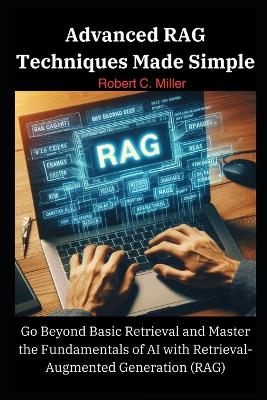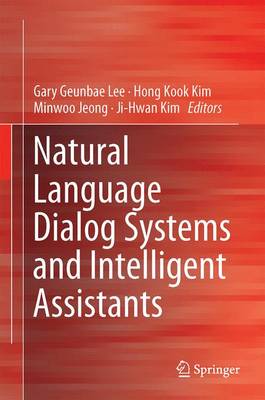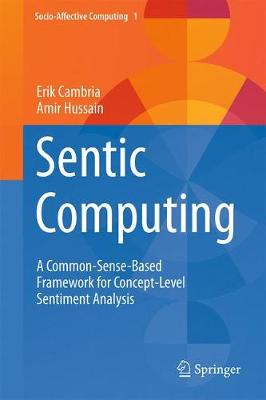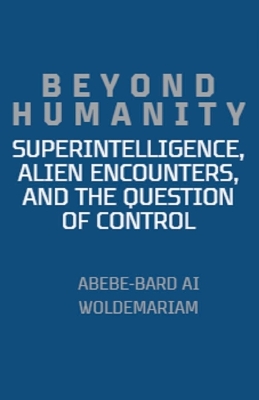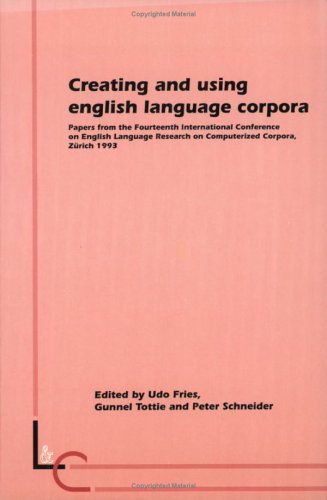Python Artificial Intelligence Projects for Beginners
by Dr. Joshua Eckroth
Build smart applications by implementing real-world artificial intelligence projectsKey FeaturesExplore a variety of AI projects with PythonGet well-versed with different types of neural networks and popular deep learning algorithmsLeverage popular Python deep learning libraries for your AI projectsBook DescriptionArtificial Intelligence (AI) is the newest technology that’s being employed among varied businesses, industries, and sectors. Python Artificial Intelligence Projects for Beginners demo...
Many take advantage of software and hardware accessibility in the English language. However, for non native speakers, this inevitably becomes a problem; specifically for the complex Bangla language which is not easily integrated into the world of technology. Technical Challenges and Design Issues in Bangla Language Processing addresses the difficulties as well as the overwhelming benefits associated with creating programmes and devices that are accessible to the speakers of the Bangla language....
Reasoning Web (Information Systems and Applications, incl. Internet/Web, and HCI, #5224) (Lecture Notes in Computer Science, #5224)
The Reasoning Web summer school series is a well-established event, attracting experts from academia and industry as well as PhD students interested in fo- dational and applicational aspects of the Semantic Web. This volume contains thelecturenotesofthefourthsummerschool, which took place in Venice, Italy, in September 2008. This year, the school focussed on a number of important application domains, in which semantic web techniques have proved to be p- ticularly e?ective or promising in tacklin...
Python Programming for Beginners - 5 in 1 Crash Course (Your Python Best Friend, #6)
by Martin Evans
Annotation-Based Semantics for Space and Time in Language (Studies in Natural Language Processing)
by Kiyong Lee
Space and time representation in language is important in linguistics and cognitive science research, as well as artificial intelligence applications like conversational robots and navigation systems. This book is the first for linguists and computer scientists that shows how to do model-theoretic semantics for temporal or spatial information in natural language, based on annotation structures. The book covers the entire cycle of developing a specification for annotation and the implementation o...
New Developments in Formal Languages and Applications (Studies in Computational Intelligence, #113)
The theory of formal languages is widely recognized as the backbone of theoretical computer science, originating from mathematics and generative linguistics, among others. As a foundational discipline, formal language theory concepts and techniques are present in a variety of theoretical and applied fields of contemporary research which are concerned with symbol manipulation: discrete mathematics, bioinformatics, natural language processing, pattern recognition, text retrieval, learning, cryptog...
Natural Language Processing with Java and Lingpipe Cookbook
by Breck Baldwin and Krishna Dayanidhi
This book is for experienced Java developers with NLP needs, whether academics, industrialists, or hobbyists. A basic knowledge of NLP terminology will be beneficial.
Natural Language Processing (Step-By-Step Tutorial for Beginners, #1)
by Samuel Burns
Hands-on projects cover all the key deep learning methods built step-by-step in PyTorchKey FeaturesInternals and principles of PyTorchImplement key deep learning methods in PyTorch: CNNs, GANs, RNNs, reinforcement learning, and moreBuild deep learning workflows and take deep learning models from prototyping to productionBook DescriptionPyTorch Deep Learning Hands-On is a book for engineers who want a fast-paced guide to doing deep learning work with Pytorch. It is not an academic textbook and do...
Natural Language Processing with Pytorch
by Delip Rao and Brian McMahan
Distributional Semantics (Synthesis Lectures on Human Language Technologies)
by Stefan Evert
Evolution of Communication and Language in Embodied Agents
by Marco Mirolli Stefano Nolfi
Dragon: Naturally Speaking for the Office Professional (Speech Recognition)
by Karl Barksdale
Voice typing is transforming the way people work, write, and enter data. This series has texts available for L&H VoiceXPress, Dragon Naturally Speaking, and IBM ViaVoice. Using any one of these books, the user can learn the most effective way to use this new software and be able to apply it to various office applications. This series takes a step-by-step approach through the speech learning process, providing tips and advice along the way. L&H VoiceXPress for the Office Professional is also avai...
Theoretical and Computational Models of Word Learning: Trends in Psychology and Artificial Intelligence
Machine Ethics
The new field of machine ethics is concerned with giving machines ethical principles, or a procedure for discovering a way to resolve the ethical dilemmas they might encounter, enabling them to function in an ethically responsible manner through their own ethical decision making. Developing ethics for machines, in contrast to developing ethics for human beings who use machines, is by its nature an interdisciplinary endeavor. The essays in this volume represent the first steps by philosophers and...
Natural Language Dialog Systems and Intelligent Assistants
This book covers state-of-the-art topics on the practical implementation of Spoken Dialog Systems and intelligent assistants in everyday applications. It presents scientific achievements in language processing that result in the development of successful applications and addresses general issues regarding the advances in Spoken Dialog Systems with applications in robotics, knowledge access and communication. Emphasis is placed on the following topics: speaker/language recognition, user modeling...
Sentic Computing (Socio-Affective Computing, #1) (SpringerBriefs in Cognitive Computation, #2)
by Erik Cambria and Amir Hussain
This volume presents a knowledge-based approach to concept-level sentiment analysis at the crossroads between affective computing, information extraction, and common-sense computing, which exploits both computer and social sciences to better interpret and process information on the Web. Concept-level sentiment analysis goes beyond a mere word-level analysis of text in order to enable a more efficient passage from (unstructured) textual information to (structured) machine-processable data, in po...
Research in Humanities Computing (Research in humanities computing)
This is an annual publication representing the state of the art in humanities computing. Each volume contains a selection of papers presented at the joint annual conference of the Association for Computers and the Humanities (ACH), based in North America, and the Association for Literary and Linguistic Computing (ALLC), based in Europe. These are two major associations for the use of computers in scholarly research and teaching in a wide range of humanities disciplines including languages, liter...
Creating and Using English Language Corpora (Language and Computers, #13)
